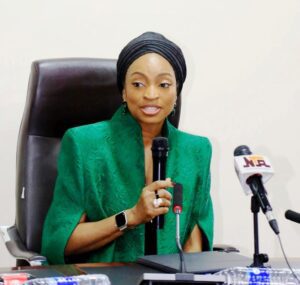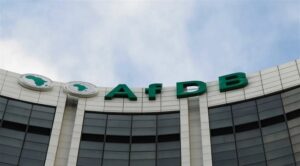FX, fixed income, others report 7.57% turnover drop to N215trn in 2020
The Fixed Income and Currencies (FIC) markets have recorded a total transaction turnover of N215.08 trillion in 2020, indicating a Year on Year (YoY) decline of 7.57 per cent, compared to N232.69 trillion recorded in Full Year (FY) 2019.
For the month ended December 31, 2020, was N19.89trillion, representing a Month on Month increase of 35.31 per cent and YoY 20.91 per cent respectively.
The latest markets turnover figures, which is contained in the FMDQ Exchange’s FIC Monthly Report for December 020 showed that Foreign Exchange (FX) and Money Market transactions were the highest contributors to the FIC markets in December 2020, jointly accounting for 59.16 per cent of the total FIC market turnover, while OMO4 Bills and Money Market transactions accounted for the majority of turnover in 2020, jointly contributing 50.54 per cent to total turnover.
The breakdown of the turnover indicated that FX market turnover in December 2020 stood at 19.72billion (N7.79trillion), representing a MoM increase of 81.25per cent ($8.84billion) from the turnover recorded in November 2020 $10.88billion (N4.21trillion).
This was majorly driven by increased FX intervention sales by the Central Bank of Nigeria (CBN) to Dealing Member Banks to reduce the build-up of unmet Clients’ FX demand in December 2020.
Analysis of the growth in FX market turnover indicated that FX Spot and FX Derivatives turnover increased MoM by 60.00 per cent($2.55billion) and 94.87per cent ($6.29billion) respectively in December 2020, with 71.15 per cent of the increase in turnover driven by the turnover growth in FX Derivatives.
In the OTC FX Futures market, the FMDQ report stated that near month contract5 (NGUS DEC 30 2020) recorded a total outstanding notional value (NV) of $2.20billion matured and was settled, whilst a new long-term (60-month or 60M) contract, NGUS DEC 31 2025 was introduced at a Futures price of $/N608.10, representing 3.24 per cent ($/N19.07) MoM increase in the futures price, compared to the offer rate ($/N 589.03) of the previous 60M contract (NGUS NOV 26 2025).
The total notional value of open OTC FX Futures contracts as at December 31, 2020, stood at $8.09billion, representing a further decrease of 9.51 per cent ($0.85billion) from its value as at November 30, 2020 ($8.94billion), and continuing its downward the trend since May 2020.
The average CBN Official Spot $/N exchange rate remained constant at $/N379.00 in December 2020. Conversely, the Naira depreciated against the US Dollar at the Investors’ and Exporters’ (I&E) FX Window, losing 2.07 per cent ($/N8.01) to close at an average of $/ N 394.92 in December 2020 from $/N386.91 recorded in November 2020.
Also, the Naira depreciated against the US Dollar in the parallel market, losing 0.17 per cent ($/N 0.81) to close at an average of $/N476.05 in December 2020 from $/N475.24 recorded in November 2020.
However the average spread between the exchange rates in the formal (I&E FX Window) and irregulated (parallel) FX markets reduced by 8.15 per cent to $/N81.13 in December 2020, from $/N88.33 in November 2020 due to the higher depreciation of the Naira in the I&E FX Window.
Consequently, the primary markets, average discount rates for the 91-day, 182-day and 364-day T.bills increased MoM by an average of 0.68 percentage points (ppts), to close at a range of 0.03 per cent – 1.85 per cent in December 2020, while the discount rates for CBN OMO bills decreased MoM by an average of 1.01ppts to close at a range of 1.78 per cent – 6.07 per cent in December 2020.
Similarly, the coupon rates of the 15Y and 25Y FGN Bond issuances increased by an average of 1.58ppts to close at a range of 6.95 per cent – 7.00 per cent in December 2020
Meanwhile, the total value of T.bills and OMO bills outstanding as at December 31, 2020, remained constant MoM at N2.72trillion and N5.37trillion respectively, whilst the total value of FGN Bonds outstanding as at December 31, 2020, increased MoM by 0.28 per cent (¦ 0.03trn) to N10.70tilliorn from N10.67trn recorded as at November 30, 2020.




